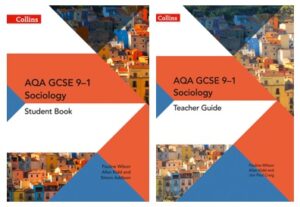So we have reached that time of year again, the year 11s have finally realised how important the exams are that teachers have been going on about for eternity, we can finally enjoy a sunny drive to work, we are even getting home to catch the last of the sunshine in the back garden (whilst also marking of course) and, joy of joys, we are preparing for a new specification.
When faced with the prospect of a new specification, especially at this time of year, it seems apt to refer to the process as a spring clean, ‘out with the old, in with new’ is the mantra. However it doesn’t seem quite as simple as that with our new AQA GCSE Sociology specification, instead it is a case of the somewhat less catchy ‘out with some of the old, in with some new to compliment some of the old’. Therefore it is vital, for quality and our own sanity, that teachers need to find the right balance between the new and the old, with regard to sociological studies and teaching styles.
I suppose what I am going to be advising throughout this piece is that we, as teachers, remember that a balanced diet is always best in all circumstances. If we look at the new AQA GCSE Sociology specification subject content we can see that this is exactly what the exam board are in fact encouraging. When we look at the different topics covered we see that the mainstays of sociology are of course present with names such as Parsons, Durkheim, Wilmott and Young, Merton, Becker and Marx are seen throughout (I sense a communal sigh of relief at this point).
However, it cannot be ignored that our subject is a living and breathing subject, in fact I believe this is the most appealing aspect of Sociology to the students. For me this means that we must ensure we are using recent studies and data to allow our students understand the relevance of the topic in contemporary society. For me the new textbook has plenty of recent studies and data and will therefore help us as teachers.
A word or two about the delivery of the new specification is also needed. As with many a new specification, we are faced with information heavy content and we must ensure we balance this with teaching which allows the students to understand and evaluate the topics. In a recent talk I attended Dr Bill Rankin, Director of Unfold Learning and former Director of Learning for Apple, he stated “experiences are what people carry around with them”. For me this emphasises the need for students to truly experience topics through their learning rather than simply learn information (although when attempting to achieve a balanced diet this is important). Again I feel the schemes of work in the teacher guide will help our students to be immersed in our fantastic subject.
My final thoughts are as follows; enjoy the sunshine, enjoy planning for the new specification, enjoy using the familiar content, enjoy searching for the new content, enjoy utilising your tried and tested teaching methods but most importantly enjoy trying out new techniques to immerse the students in their learning. As the old adage goes, “Tell me, I’ll forget. Show me, I’ll remember. Involve me, I’ll understand”; it won’t matter if it is the old or new material, students will lap up the balanced diet on offer if they are involved. Good luck to you all.

Jon-Paul Craig, author of the AQA GCSE 9-1 Sociology Teacher Guide
Jon Paul has taught GCSE and A-level Sociology for over 11 years. As a classroom teacher, head of department, and now assistant principal in charge of sixth form, his passion has always been teaching and learning and he regularly trains other members of staff.
Collins AQA GCSE 9-1 Sociology resources are out now. Find out more here.



